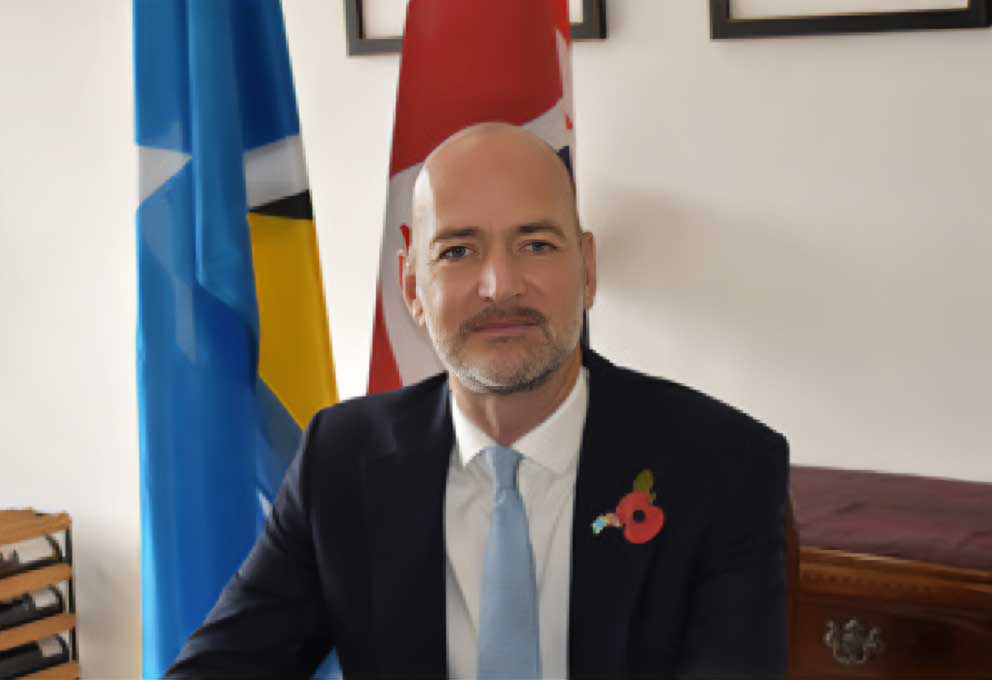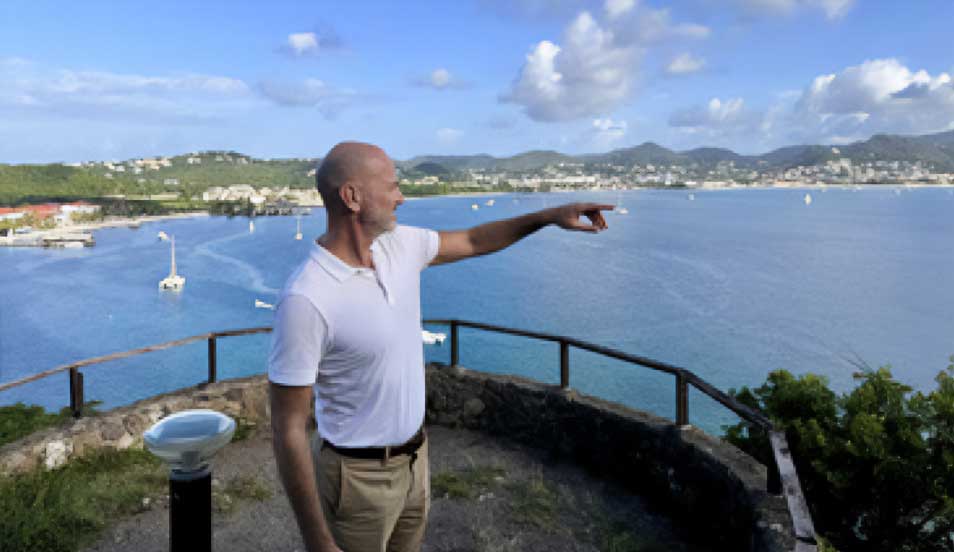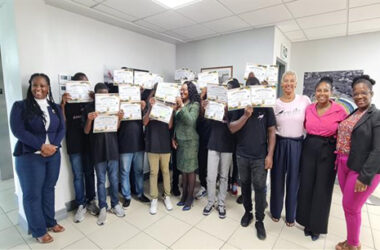
DURING his trip to Saint Lucia this week, British High Commissioner Scott Furssedonn-Wood met with journalists to discuss the United Kingdom’s (UK) growing relationship with Saint Lucia and the progress it has been making on the island.
Noting that the UK has been the biggest bilateral donor to Saint Lucia in terms of grant funding in recent years, Furssedonn-Wood told reporters “we’ve been doing a whole range of things across the country which really responds to the priorities that have been identified here bringing together our shared vision for the future.”
Furssedonn-Wood said his visit was significant as it allowed him to showcase “the many things that the United Kingdom and Saint Lucia are doing.”
Over the years, the UK has taken on a number of projects in Saint Lucia that have benefited the island immensely. The UK has invested millions of dollars in infrastructure as well as a number of ‘Smart’ projects, amongst others.
“We’ve been working to upgrade health facilities to make them resilient to natural disasters. We’ve upgraded 15 facilities across Saint Lucia called ‘Smart’ hospitals. We’ve already seen that resilience tested. We’ve seen how those facilities can withstand the impact of major weather events,” Furssedonn-Wood said, adding that “we’ve also been investing in young people in Saint Lucia through our ‘Sky’ programme which is a vocational skills programme for young people including people from disadvantaged backgrounds.”

According to Furssedonn-Wood, a number of individuals have already found employment through the programme.
“We’ve helped two and a half thousand young people through that programme in Saint Lucia and I’m really proud to say that… 60 percent of them have now found employment; 20 percent have gone into further education and six percent have started their own businesses with the skills that they have acquired,” Furssedonn-Wood said.
“We’ve also got a longstanding scholarship programme called Chevening and yet again this year Saint Lucia has done really well in the allocation of Chevening scholarships— really recognizing the strength of talent and ability that we see here across Saint Lucia,” he added.
Designed to support Britain’s public diplomacy overseas, the Chevening programme began in 1983 and is funded by the Foreign, Commonwealth and Development Office (FCDO) and partner organisations.
Over 50,000 individuals have had the opportunity to study in the UK through Chevening, demonstrating the UK’s commitment towards developing scholars.
The UK is “delighted that once again…” scholars from Saint Lucia are undertaking “fully funded Masters Programmes… we believe in their potential not just for their own lives but to use that education to come back to the region and really make a difference,” Furssedonn-Wood said.
“Other things we’re doing include investment in renewable energy. We work with our partners in the World Bank and our friends in the Canadian government. We are funding the exploration work for geothermal energy in Saint Lucia which has huge potential in terms of energy independence, climate mitigation and we’re also supporting a range of private sector and civil society organizations across the country. Taken together, this is a big investment on our part in Saint Lucia… it also is a reflection of the strength of the partnership between us and all the things we’re doing together,” Furssedonn-Wood noted.
He added that “we are thinking about the next phase—what we need to do next here in Saint Lucia, how can we take our relationship to another level, what are the areas here in Saint Lucia where perhaps the British government can play our part as friends in supporting economic and social development. So this week as well as seeing the prime minister, we’ve been out from the very south to the very north of Saint Lucia talking to people, finding out about some of the challenges people are facing but also some of the opportunities that they see so that we can think about how in the United Kingdom we can be a partner in some of those initiatives and endeavours for the future.”
“It’s been a great few days here—really looking forward to finding new ways of working together and it is an awful lot for us to celebrate as two very longstanding friends and partners who work together regionally (and) internationally in so many different ways,” Furssedonn-Wood said.





